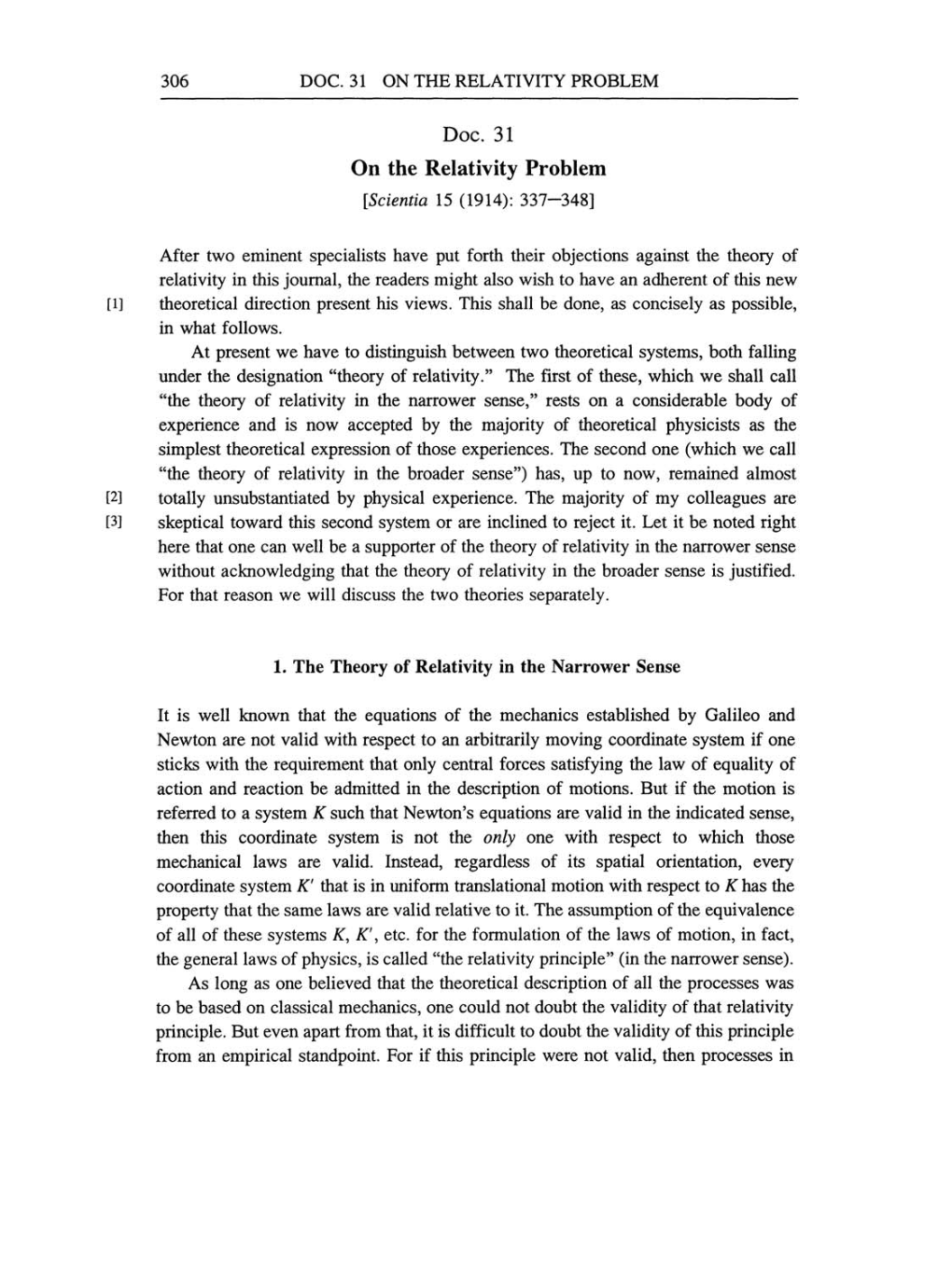306 DOC.
31
ON THE RELATIVITY PROBLEM
Doc.
31
On the
Relativity
Problem
[Scientia 15 (1914):
337-348]
After
two
eminent
specialists
have
put
forth their
objections against
the
theory
of
relativity
in this
journal,
the readers
might
also wish to have
an
adherent of this
new
[1]
theoretical direction
present
his views. This shall be
done,
as
concisely
as
possible,
in
what follows.
At
present we
have to
distinguish
between
two
theoretical
systems,
both
falling
under the
designation "theory
of
relativity."
The first of
these,
which
we
shall call
"the
theory
of
relativity
in
the
narrower
sense," rests
on a
considerable
body
of
experience
and
is
now
accepted by
the
majority
of theoretical
physicists
as
the
simplest
theoretical
expression
of those
experiences.
The second
one
(which
we
call
"the
theory
of
relativity
in
the broader
sense") has,
up
to
now,
remained almost
[2] totally
unsubstantiated
by
physical experience.
The
majority
of
my
colleagues are
[3]
skeptical
toward
this
second
system
or are
inclined
to
reject
it.
Let it be noted
right
here that
one can
well be
a
supporter
of the
theory
of
relativity
in the
narrower sense
without
acknowledging
that
the
theory
of
relativity
in
the broader
sense
is
justified.
For that
reason we
will discuss the
two
theories
separately.
1.
The
Theory
of
Relativity
in the
Narrower
Sense
It
is
well known that the
equations
of the mechanics established
by
Galileo and
Newton
are
not
valid with
respect
to
an
arbitrarily
moving
coordinate
system
if
one
sticks with the
requirement
that
only
central forces
satisfying
the law of
equality
of
action and reaction be admitted
in
the
description
of motions. But if the motion
is
referred
to
a
system
K such that Newton's
equations
are
valid
in
the indicated
sense,
then this coordinate
system
is not
the
only one
with
respect
to
which those
mechanical laws
are
valid.
Instead,
regardless
of its
spatial
orientation,
every
coordinate
system
K' that
is
in uniform translational motion with
respect
to K
has the
property
that the
same
laws
are
valid relative
to it.
The
assumption
of
the
equivalence
of
all
of these
systems K,
K', etc.
for the formulation of the laws of
motion,
in
fact,
the
general
laws
of
physics,
is
called "the
relativity principle" (in
the
narrower
sense).
As
long as one
believed that the theoretical
description
of
all
the
processes
was
to
be based
on
classical
mechanics,
one
could
not
doubt the
validity
of that
relativity
principle.
But
even
apart
from
that,
it
is
difficult
to
doubt
the
validity
of this
principle
from
an empirical standpoint.
For if this
principle
were
not
valid,
then
processes
in
